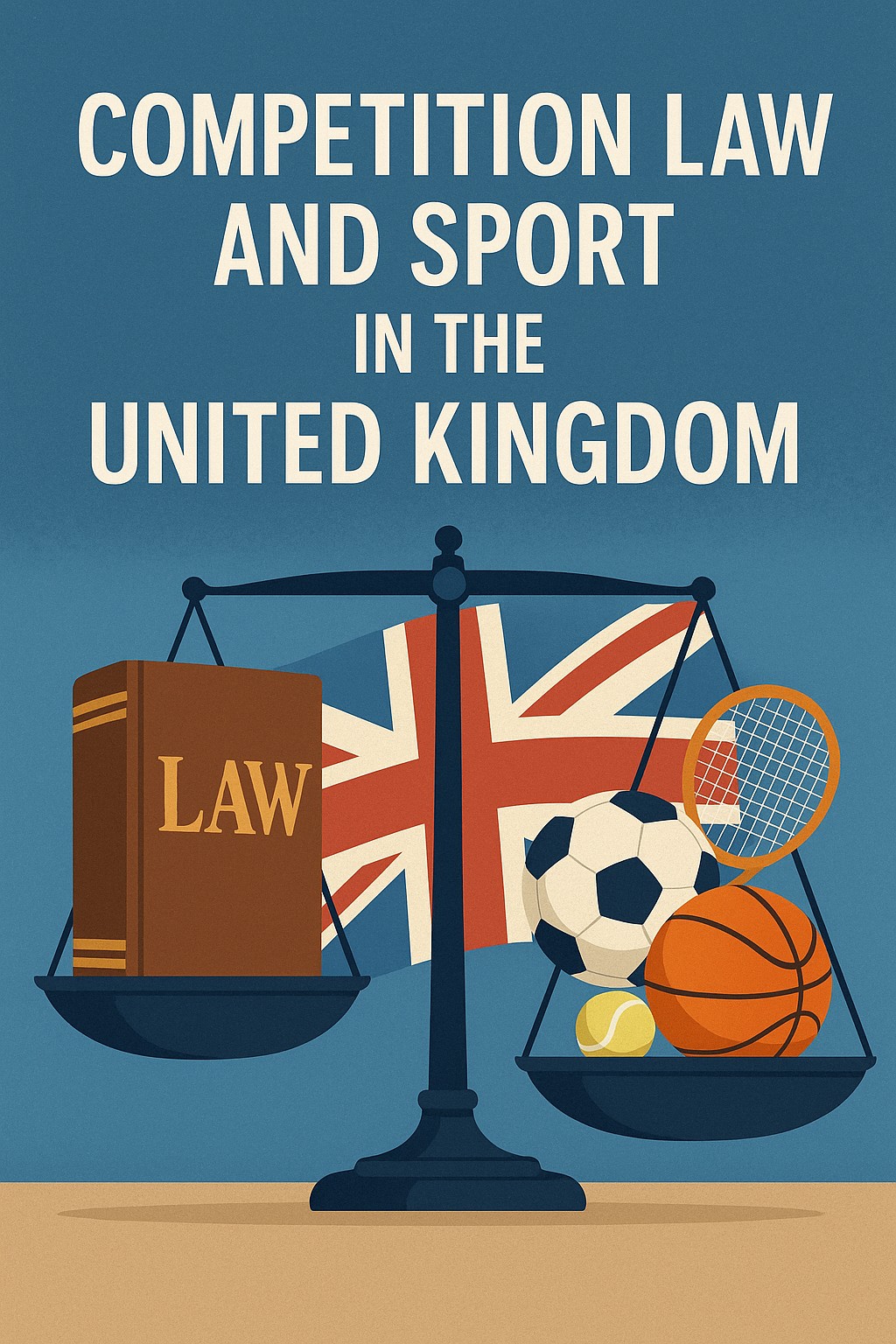COMPETITION LAW AND SPORT IN THE UNITED KINGDOM

Introduction
The main goals of competition law are to promote consumer welfare and economic growth by ensuring healthy competition, which leads to lower prices, better quality, and greater choice for consumers.
It achieves these goals by preventing anti-competitive practices, such as price-fixing and market allocation; prohibiting the abuse of dominant market positions; and controlling mergers and acquisitions that could significantly lessen competition.
Competition, per se, is not illegal, but unfair competition is illegal.
Again, having a dominant position is not, per se, illegal, but only abusing it makes it illegal.
The UK
In the UK, competition is governed, principally, by the UK Competition Act of 1998 (the Act), which applies to sport, in so far as it is a business or economic activity and prohibits anti-competitive agreements and the abuse of dominant positions.
However, the Act must also take into account the unique character or nature of sport: the so-called ‘specificity of sport’.
Sports governing bodies must ensure that their rules are transparent, proportionate, consistent and based on legitimate aims, avoiding conflicts of interest arising from their often dual roles of regulating and commercialising their sports.
Increasingly, competition law is being used to challenge restrictions on athletes’ earnings, tournament schedules, broadcasting rights and collusion in the sports labour market.
Prohibition of anti-competitive agreements (Section 2.1 of the Act)
Rules, policies, or other arrangements, including cartels, between sports bodies, clubs, or even athletes, that prevent restrict or distort competition, such as price-fixing or market allocation, may be unlawful.
See, for example, the Leicester City FC case of colluding with other parties to limit competition, through market-sharing and price-fixing agreements relating to the sale of its branded clothing, such as replica kits.
Collusive tendering for sports broadcasting and other commercial/marketing rights may also fall foul of Section 2.1 of the Act.
Abuse of dominant positions (Section 18.1 of the Act)
Sports governing bodies with dominant positions in their particular markets – defining the ‘relevant market’ is always a controversial matter – are prohibited from abusing those positions if trade may be affected in the UK.
For example, by unfairly blocking competitors. See, for example, the Sports Direct and Newcastle United FC case regarding the abuse of its dominant position by unlawfully refusing to sell replica kits to Sports Direct.
Conflicts of interest
Sports governing bodies must also manage conflicts of interest, as they often, as mentioned, regulate their sports whilst, at the same time, also engage in commercial activities.
For example, selling sports broadcasting rights to a single bidder on an exclusive basis. See the case of the BSkyB exclusive acquisition of the English Premier League live matches in the UK and its competition implications.
Labour market collusion
Attention by the competition authorities is also, increasingly, being paid to preventing anti-competitive collusion between football clubs in sports labour markets. For example, on wage-setting and transfers of players.
Exemptions from UK Competition Law
Exemptions from UK Competition Law may be sought for agreements that would otherwise be anti-competitive in nature, but which produce efficiencies and benefits that outweigh their anti-competitive effects.
These exemptions may be granted either automatically through a ‘block exemption’ for certain categories of agreements, which include those relating to technology transfers, under the Technology Transfer Block Exemption; or on a case-by-case basis through an ‘individual exemption’ granted, pursuant to the provisions of Section 9 of the Act, by the UK Competition and Markets Authority (CMA), which oversees Competition Law in the UK, provided that they meet specific conditions.
Such exemptions may apply, for example, to restrictions in specialised sports equipment manufacturing and sale agreements, for example, in gymnastics and bobsleigh.
These exemptions are similar to those that may be sought, on an individual basis, and granted in respect of otherwise restrictive agreements, pursuant to the provisions of Article 101(3) of the European Union Treaty. Again, it must be demonstrated that the pro-competitive benefits outweigh the restrictions.
Breaches of UK Competition Law
Breaches of UK Competition Law may result in various and significant sanctions.
Fines of up to 10% of the annual worldwide turnover of the offending company, based on the financial year preceding the end of the infringement, may be imposed.
The CMA may order companies to change their practices, and they may also be required to compensate consumers for any financial harm suffered by them. Company directors may also be disqualified from managing a company for up to 15 years.
Individual offenders, who are involved in a cartel, may face up to five years in prison and may also be subject to unlimited fines.
It may be added that the CMA operates a leniency programme, under which companies and individuals may be granted either full immunity from penalties or a reduction in the fines, if they are the first to report a cartel and cooperate fully with the CMA. Such programmes exist elsewhere, including breaches of European Union Competition Law. See the European Commission ‘Leniency Notice’ of 2006.
Balancing interests
In conclusion, sports governing bodies, therefore, need to find a balance between maintaining the integrity and competitiveness of their sports and, at the same time, complying with UK competition law, particularly when implementing rules that have an impact upon their economic activity.
We advise on sports competition law cases in the UK, and further information is available by e-mailing our UK and International Sports Law Consultant, Prof Dr Ian Blackshaw, at blackshaw@valloni.ch.